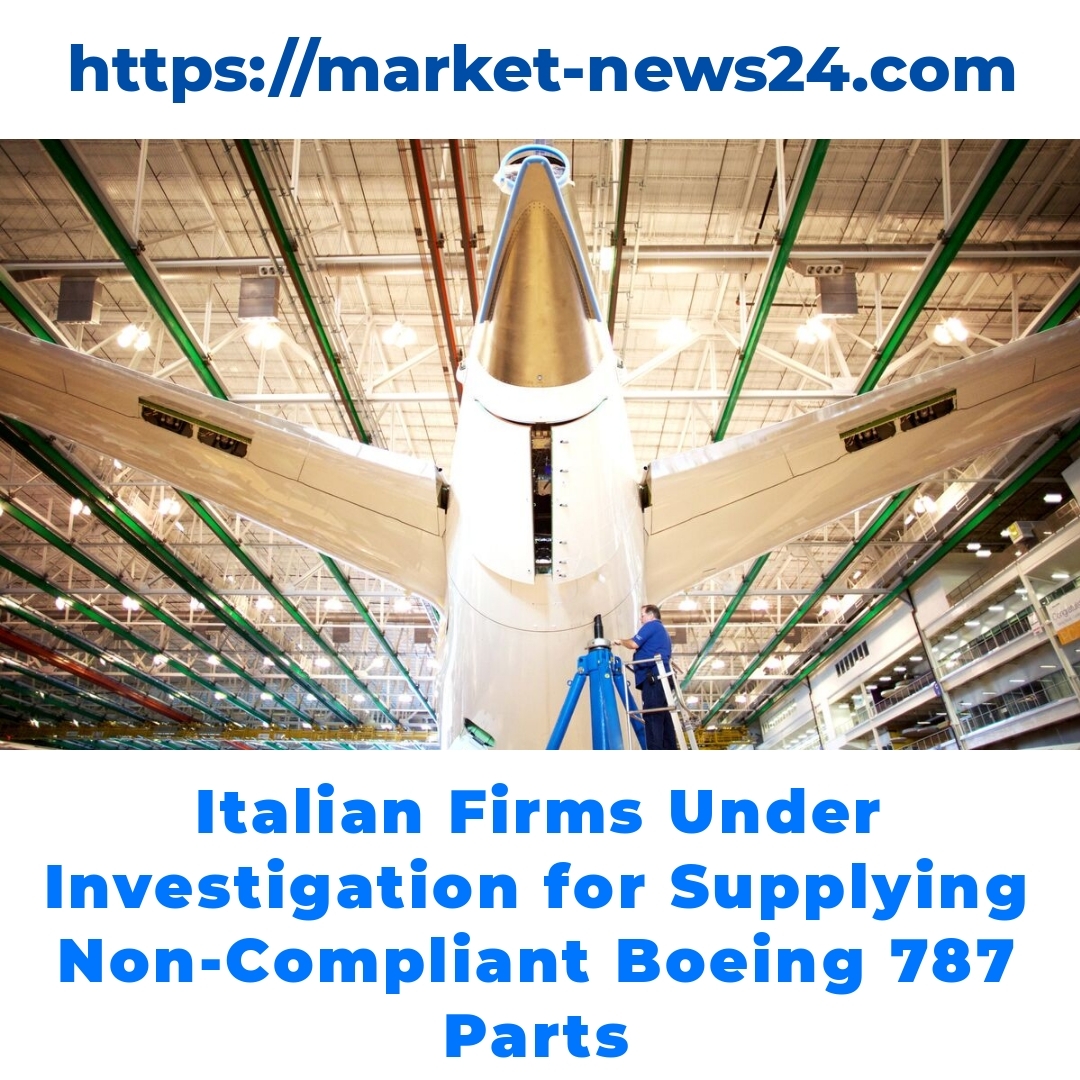The ongoing investigation into Italian aerospace companies, particularly Leonardo SpA, has raised significant concerns regarding compliance in the manufacturing of aeronautical components for the Boeing 787 Dreamliner. This situation underscores the vital importance of adhering to rigorous regulatory standards to ensure safety in the aerospace industry.


Background of the Investigation
The investigation into the practices of two Italian aerospace companies, including Leonardo SpA, was sparked by serious allegations related to the supply of non-compliant aeronautical components for the Boeing 787 Dreamliner. This raised eyebrows across the industry, highlighting potential lapses in manufacturing standards that are critical for aviation safety.
Italian prosecutors took swift action, initiating a full inquiry to uncover the extent of the issues. Their objectives include identifying who was responsible for these non-compliant parts and assessing the potential risk posed to aircraft safety and operations. It’s a serious matter that has attracted considerable attention both in Italy and globally.
Leonardo SpA and Its Procurement Process
Leonardo SpA stands out as a key player in the aerospace supply chain, known for its extensive contributions to aircraft manufacturing. However, this investigation brings to light the inherent challenges within its procurement process. Suppliers must meet stringent compliance standards to ensure the safety and reliability of their products, especially when it comes to advanced aircraft like the Boeing 787 Dreamliner.
Given Leonardo’s reputation, any sourcing issues can have a ripple effect, ranging from reputational damage to operational disruptions. The procurement of aeronautical components can be complex, with various layers of regulation that companies need to navigate. Challenges in this area are not just legal; they could also impact the company’s relationships with clients and partners.
Details on Non-Compliant Aeronautical Components
So, what exactly are non-compliant aeronautical components? Essentially, these are parts that fail to meet established regulations or quality standards required for safe operation in aircraft. The implications of such non-compliance can be serious, not only threatening aviation safety but also leading to potential legal ramifications and financial losses for companies involved.
Specific components related to the Boeing 787 Dreamliner have come under scrutiny during this investigation. These parts are integral to the aircraft’s overall integrity and performance. When non-compliant parts are present, it raises significant concerns, not only about safety but also about the general efficacy of the aircraft in operational scenarios.
Implications of the Investigation
The investigation could have profound implications for Leonardo SpA. Trust is paramount in the aerospace industry, and questions about regulatory compliance can severely damage a company’s reputation. For a company like Leonardo, potential consequences may range from financial penalties to stricter regulatory scrutiny in the future.
Moreover, the broader aerospace supply chain might feel the aftershocks of this inquiry. Other aerospace companies could face increased pressure to scrutinize their own supply chains more closely to avoid similar situations. This investigation could lead to changes in how compliance is monitored across the industry, fostering a culture of more rigorous oversight.
Reactions and Responses
In light of the ongoing investigation, Leonardo SpA and the accused companies have made it a point to respond publicly. Statements from their management typically emphasize their commitment to high-quality standards and compliance with industry regulations. They are keen to assure clients, regulators, and the public that they take these allegations seriously.
Among industry stakeholders, there’s a mixture of concern and cautious optimism. Many experts believe that such inquiries sometimes serve as a wake-up call for companies to prioritize compliance and integrity. There’s a growing consensus that the investigation could act as a catalyst for positive change in the aerospace sector.
Conclusion
In summary, the investigation involving Italian aerospace companies, particularly Leonardo SpA, underscores critical issues surrounding compliance in the manufacturing of aeronautical components for the Boeing 787 Dreamliner. As we look ahead, the future outlook for compliance in the aerospace industry seems to lean towards heightened scrutiny and stricter adherence to regulations.
Predictions suggest that regulatory frameworks could evolve in response to this situation, emphasizing the need for all companies within the aerospace supply chain to foster a culture of compliance and accountability. The goal is clear: prevent similar issues from arising in the future so that safety and quality remain at the forefront of aircraft manufacturing.
What sparked the investigation into Leonardo SpA and the other aerospace companies?
The investigation began due to serious allegations regarding the supply of non-compliant aeronautical components for the Boeing 787 Dreamliner. These concerns highlighted potential lapses in manufacturing standards that are crucial for aviation safety.
What are the main objectives of the investigation?
- Identify who is responsible for the non-compliant parts.
- Assess the potential risks posed to aircraft safety and operations.
- Uncover the extent of the issues within the companies involved.
Why is compliance important in the aerospace industry?
Compliance is essential in the aerospace industry to ensure the safety and reliability of aircraft components. Non-compliant parts can threaten aviation safety and may lead to significant legal and financial consequences for the companies involved.
What implications could the investigation have for Leonardo SpA?
- Potential damage to the company’s reputation and trust among clients.
- Financial penalties and increased regulatory scrutiny in the future.
- Possible changes in how compliance is monitored across the aerospace supply chain.
How are Leonardo SpA and other companies responding to the investigation?
Leonardo SpA and the other accused companies have publicly stated their commitment to high-quality standards and compliance. They aim to reassure clients, regulators, and the public that they take these allegations seriously.
What can we expect for the future of compliance in the aerospace industry?
The situation is likely to lead to a culture of greater oversight and a more rigorous approach to compliance among aerospace companies, fostering accountability and preventing similar issues from arising in the future.





